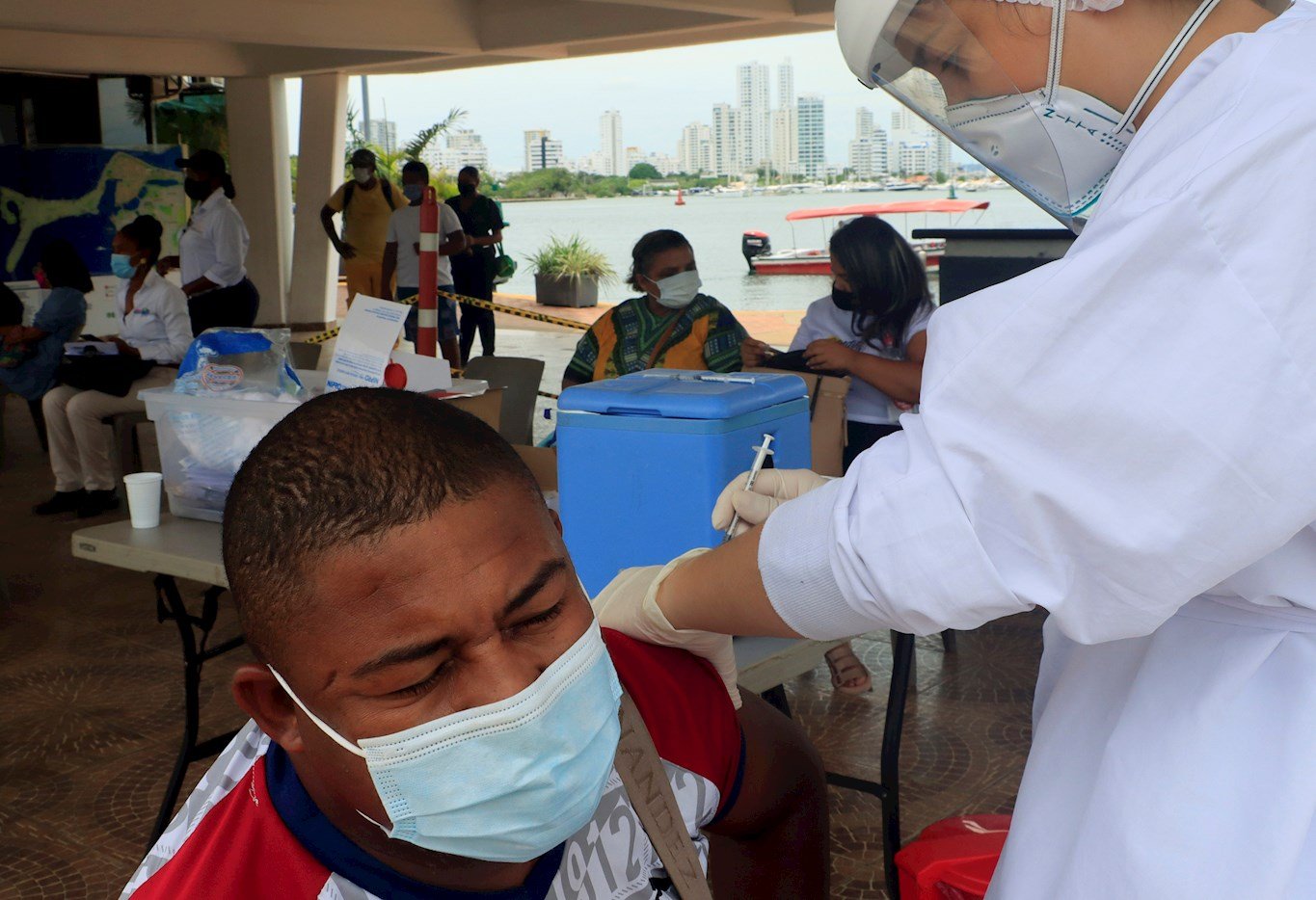The epidemiologist and director of the Global Alliance for Vaccination (GAVI), Seth Berkley, warned that “there are still 16 countries in the world with less than 10% of the population vaccinated” and 14 of them are in “challenging” situations, such as armed conflicts.
In an interview with EFEBerkley (United States, 1956) assures that “the situation has improved compared to January, when there were 34 countries with less than 10% of the population vaccinated”, and values that “reducing by more than half the countries with this low The vaccination rate has not been easy, because it is difficult to operate in countries with such weak health systems.”
GAVI, created in 2000 by, among others, Microsoft founder Bill Gates, is a global public-private partnership organization to ensure and improve access to vaccination, particularly for children in developing countries, against infectious diseases. preventable life-threatening
During the start of the COVID-19 pandemic, the entity promoted a campaign to raise 10,000 million dollars – an amount that they obtained after a few months – to reach, at least, 20% of the vaccinated population in all countries.
Berkley, who participated in an event in Barcelona (Spain), says that at the moment “47% of the population of the 92 poorest countries in the world have received an average of two doses of the COVID-19 vaccine, while the global average is 61%”.
Of the 92 countries, GAVI operates in 86 and since its inception has financed the vaccination of nearly 800 million children against deadly diseases such as diphtheria, tetanus, hepatitis B, yellow fever and, more recently, COVID.
This difference, according to the epidemiologist, shows that “the distribution is still not equitable, but steps are being taken so that the distance is smaller and smaller because, in addition, soon everyone will need more doses of the vaccine to the COVID”.
Coronavirus: Emirates claims to have vaccinated 100% of the planned population
For a fair distribution
Another of the challenges that GAVI faced was that “many pharmaceutical companies did not prioritize access to vaccines in developing countries, but their sales in developed countries,” denounces the director.
“When we saw that this mercantilist vision prevailed, we chose to work with manufacturers to change the course of this dynamic and find a balance between selling patents and promoting equity in distribution,” he adds.
At the same time, most developed countries had access to the different COVID vaccines, with which they were able to immunize their population before poor countries.
“We knew that political leaders would do everything possible to defend their citizens first, but in a global pandemic we are only safe when everyone is safe,” warns Berkley, criticizing that “many countries have prioritized nationalism and have forgotten the rest of the world”.
For now, the director recommends “minimizing the risks in each country as much as possible and vaccinating everyone with some equity to avoid new strains that can cause vaccines to stop being effective.”
The low vaccination rates are especially focused on Africa, where “tests are scarce, so the scope of covid has focused, above all, on autopsies of patients who were potential carriers of the virus,” says the epidemiologist.
The expert also highlights that the severity of the disease in African countries is less than in developed countries because, for example, “if the average age in Japan is 80 years, the African population has an average of about 18 years, so the serious pictures will be minor”.
This, however, “does not mean that we should forget about these countries, which for the most part have much less opportunity to be immunized against COVID,” Berkley concludes.
–


